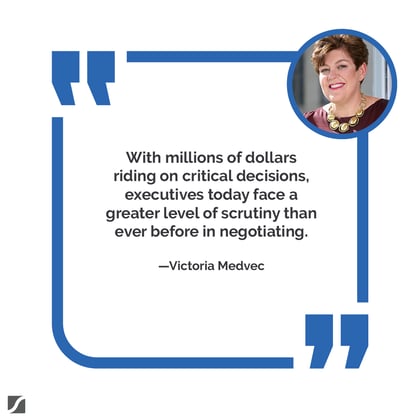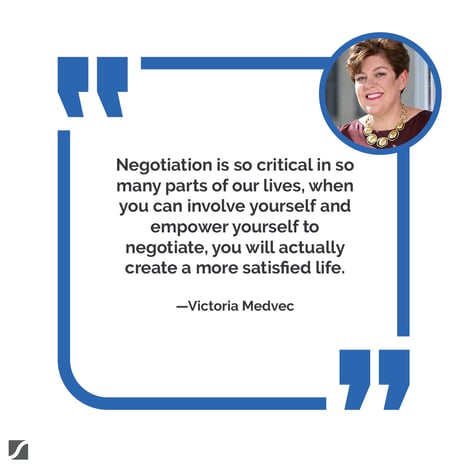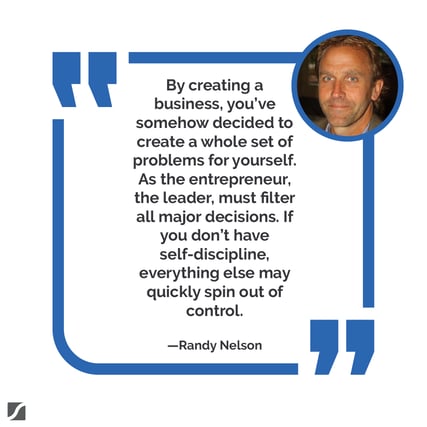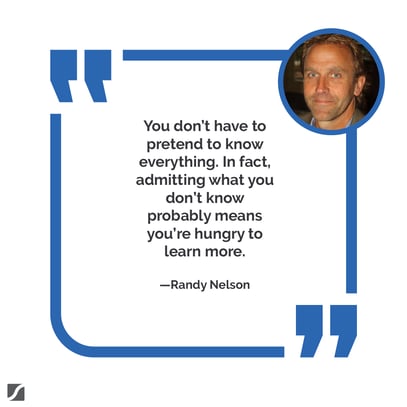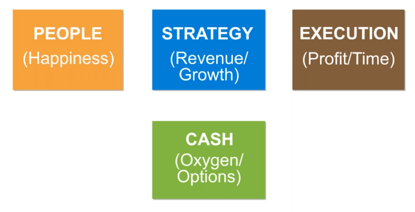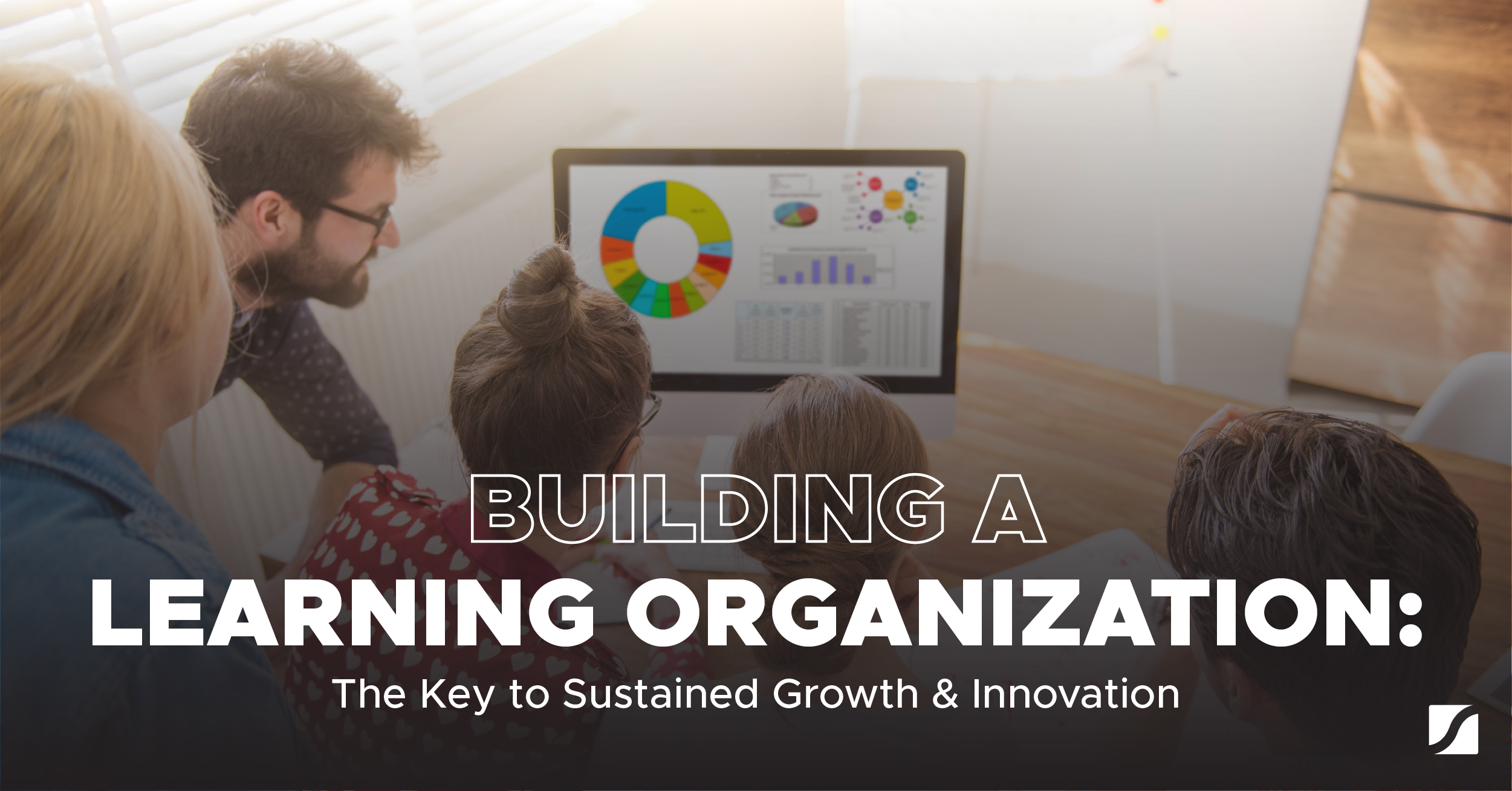Mastering Critical Decision-Making: 3 Powerful Resources To Solve Strategic Dilemmas
%20(1)-2.png)
%20(1).png?width=716&height=375&name=Blog_Metaimage_1080x1080%20(1200%20%C3%97%20628%20px)%20(1).png)
As a business leader, executive, or CEO, the ability to make critical decisions accurately and quickly is essential for the success of your organization.
Critical decision-making requires the leader to analyze the situation thoroughly. From there, they must weigh the available options. And finally, make the best choice. Often that choice must be made under intense pressure.
Before we go any further...
Why is executive decision-making so crucial?
Executive decision-making is the cornerstone of any successful organization. From small to large companies, the ability to make sound decisions can be the difference between success and failure.
Leaders have an incredibly important role when it comes to executive decision-making. Their job is to set the direction of the organization and make the choices that will shape its future.
It's no secret that making the wrong decision can have devastating consequences.
Fortunately, there are steps a leader can take to ensure that they are making the best critical decisions for their business. Our goal at Growth Institute is to guide leaders every step of the way to make the executive decision-making process as painless as possible.
We will show you a couple of ways throughout this article to make better critical decisions and 3 resources that will provide a major confidence boost to your decision-making abilities.
The 1st resource we'll discuss is Victoria Medvecs High Stakes Negotiating.
Learn to Negotiate Without Fear
Dr. Medvec believes negotiating without fear is crucial to helping you make better critical decisions for your business.
Dr. Medvec works with fortune 500 companies worldwide to help them become master negotiators and make critical decisions on the spot.
Negotiating and the decisions that need to be made during it can be a grueling process.
Negotiation is a joint decision-making process in which co-dependent parties engage one another in an effort to arrive at a ‘good’ decision that would satisfy their underlying concerns.
What constitutes a ‘good’ decision will depend on the situation.
The goal of negotiation, therefore, becomes working together to achieve the best decision that the parties are capable of in the circumstances in which they find themselves.
Victoria helps you overcome all that and make the right decision every time. 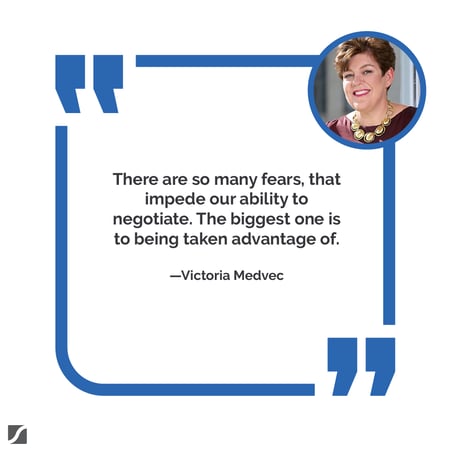
“I am afraid I will damage the relationship”
“I am afraid the other side will walk away”
“I am afraid I will get a bad deal”
There are some simple strategies to take this fear out of negotiation and confidently make appropriate decisions.
If you want to dive deeper into these with Dr Victoria Medvec you can do so in the High Stakes Negotiations Business Master Course.
Moving on to the next resource…
The Three+ Critical Decision-Making Model Tool
The Decision Series by Randy H. Nelson is another incredibly valuable resource for Executive Decision Making.
This seminar series is a compilation of three online seminars to help leaders make better, calculated decisions faster. It gives leaders more confidence while growing their leadership skills individually, in business, and in their personal life.
Let's touch briefly on each of the 3 decisions. (The Second, Third and Fourth).
A- Start defining your role and responsibilities
The first question to ask yourself is to know which critical decisions you are able and willing to make. This implies redefining your role and objectives in the short, medium, and long term.
To do so, Randy H. Nelson shares insights from his book The Second Decision. Here, he teaches you how to decide what role you will play over the next 3-5 years. Will it be The Leader, the Role-Player, or the Creator?
With this process, you’ll gain the ability to make a very difficult decision. Are you the one who is meant to carry the responsibility of the company on your shoulders? Your company is no longer an idea on a napkin; you have staying power and lots to accomplish over the next 3-5 years.
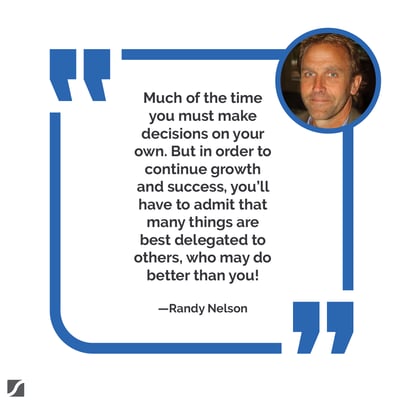 Some questions to ask yourself:
Some questions to ask yourself:
Are you enjoying everything?
Are you up for the same tasks?
Most importantly, Do you possess the vision, the personal skills, the perseverance, and the nuts-and-bolts knowledge that your company needs from its leader at this stage of its growth?
If not, can you ever get there?
Do you even want to?
The Second Decision helps you unpack what role you are meant to play in the organization. You'll realize if you are the Leader who will put the company on your shoulders. The Role Player who takes another position in the company. Or maybe you are meant to be a Creator who looks for the next big idea.
It's on you to determine your role and make the hard leadership decisions to help your company beat the odds and keep growing for years.
B- Leave behind your entrepreneurial addiction
The Third Decision learning suite will help you become more intentional about your everyday and future decisions without having regrets.
Sure, some entrepreneurs are happy to live only for their business. However many others look back on everything they missed during their pursuit of success.
Randy explores the concept of "entrepreneurial addiction" and how leaders can become more intentional about their daily and future decisions. Being an intentional entrepreneur requires thinking ahead and asking yourself tough questions about what you might regret in the future today.
So, what decisions must you make to live a regret-free entrepreneurial life?
C- Make calculated decisions faster with more confidence
Decision-making practice applying the previous stages will turn your ability to make critical decisions into "second nature" tasks. As a result, you will start to execute this skill while executing another task.
The Fourth Decision guides you through the last stage to master critical decision-making without conscious effort.
You become maximized, expanding the time horizon for your dreams to an entire lifetime, realizing that a high percentage of leaders simply never retire—they just work differently as they age.
In the Fourth Decision learning suite, you will learn to understand the concept of Unconscious competence and the "Baseline" concept to make better, calculated decisions faster and more confidently.
3- The 4 key decisions model by Verne Harnish
A- Get the right people doing the right things right
And for our last resource to master executive decision-making:
The 4 key decisions model by Verne Harnish.
The first step, "People" is crucial to help you answer the question, "What do I do when I'm uncertain?
Getting the right people around you is key because they help you make critical decisions.
Those great people you bring on board guide you in areas outside of your core expertise according to Jim Collins's research evidence.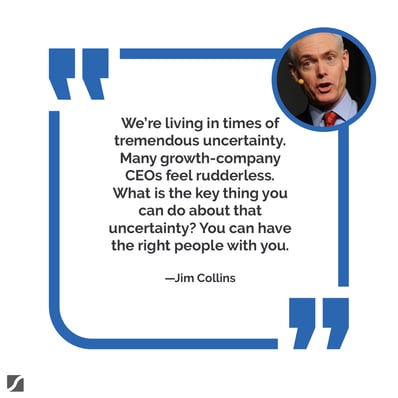
B- Ask the right questions to make the right decisions
Don’t know where to start?
Start debating your next moves with your team. Decision-making is not about consensus” so ask the “Right Questions”. In his last guiding principle in designing the 4D Framework, Verne Harnish states “We have the answers, all the answers; it's the question we do not know.”
Each of the 4 Decisions - People, Strategy, Execution, and Cash - is anchored by an overarching Key Question. And the accompanying Growth Tools are designed to focus teams on specific questions driving growth and performance for each of the 4 Decision areas of the business.
The truth is most of the teams we work with are wicked smart.
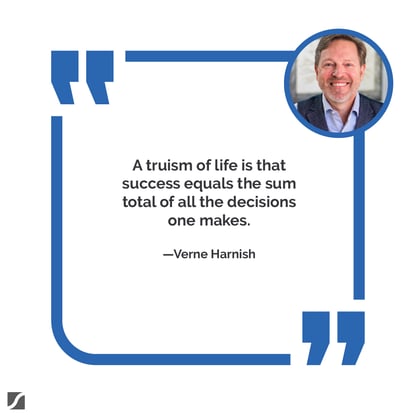
We know with enough perseverance and grit they'll find answers. Our concern is that they continue to work on the wrong questions. Much of Verne Harnish's work is helping leadership teams formulate the right questions. Once they get the questions right, the answers appear.
Equip your team to make critical decisions
Another point we'd like to touch on is that delegating critical decision-making is crucial for every leader. Many times this is an uncomfortable and stressful shift for leaders even when they trust their employee's skills. Leaders often doubt people's ability to make "good calls" and feel unsure about how to coach them.
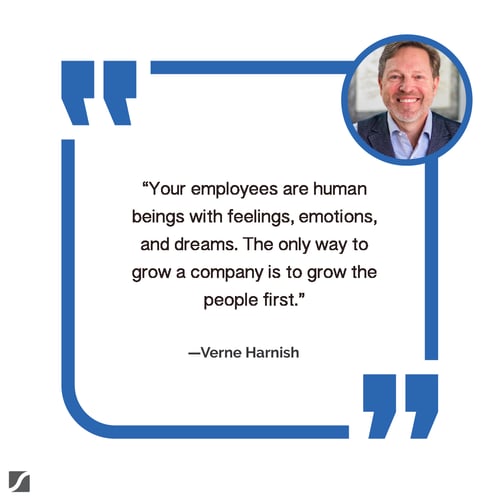
That’s why we created MBD All Access.
To help leaders and their employees get on the same page. And learn how to scale together. This all-in-one program targets every critical area of scaling a business.
It includes all our master business courses, and training videos, including the 3 resources we discussed in this article. You will never be left to figure things out on your own when you have MBD AA at your disposal.

You can click above for a free one-week trial and test drive the program. Or you can schedule a call to learn more about MBD All Access by clicking here. On this call, one of our business strategists will help you develop a personalized plan that makes the most sense for you.
In summary, critical decision-making is an essential skill for business leaders, executives, and CEOs. Making the right decisions can be the difference between success and failure. Leaders must be well-informed and thoroughly prepared when it comes to their executive decision-making process.
Leaders should always undertake thorough research and analysis, involve their team wherever possible, and take a measured approach to decision-making. By doing so, leaders can ensure they are making the best critical decisions for their business.
If you want to make significant decisions as the leader of your business, our goal at Growth Institute is to guide you every step of the journey.
Book your call here to learn more


